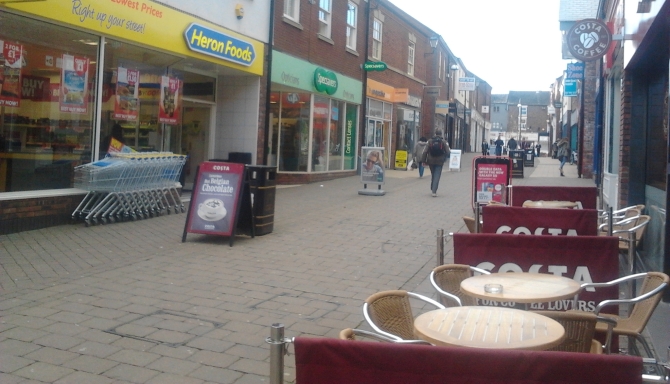The issue of business rates remains one of the most contentious in the retail industry, with claims that the commercial property levy was a key reason for soaring shop vacancy rates during the recession. However, under a new proposal by Derby City Council, large retailers such as Tesco, Asda and Sainsbury’s could find themselves subject to additional taxation designed to benefit the high street.

Backed by 19 other local authorities, the council has called on the government to implement a new tax on large supermarkets, informally known as a “Tesco Tax”. Already in place in Scotland and Northern Ireland, the initiative would see large supermarkets pay an additional 8.5 per cent business rates as a means of channelling funds back into local communities.
Derby City Council made the suggestion under the Sustainable Communities Act, and this week submitted a full report to the government outlining the implementation and benefits of such a scheme.
In its report, it said; “Research has shown that 95 per cent of all money spent in any large supermarket leaves the local economy for good, compared to just 50 per cent from local independent retailers.
“This levy is a modest attempt to ensure more of that money re-circulates within and continues to contribute to local jobs and local trade.”
Should the proposal be passed, any large retail premises with a rateable value of more than half a million pounds would be affected. Official estimations forecast that, if every local authority in England chose to participate in the scheme, the cost to large supermarkets would amount to £190 million in tax alone.
However, should the scheme be extended in order to cover all large retailers including the likes of Ikea, B&Q and Homebase, the sum raised by local authorities would come in at a staggering £400 million in total. This money would then be used to support small businesses, build community centres and improve public parks within local areas – it could even prove to be a welcome lift to the high street.
Unfortunately, the plans do have a number of downsides, with economists pointing out that supermarkets are already facing a great deal of problems attempting to compete with discounters. This additional tax could increase the financial burden upon them and even cause a boom in the number of profits warnings released by large retailers.
In order to avoid this, economists believe, supermarkets will have no alternative but to raise prices once more, thus hitting the pockets of consumers.
Prominent retailer Bill Grimsey believes the idea has merit, but does not think that introducing an annual levy will hugely benefit local areas.
In his independent review of the high street released last year, he called for a one-off investment by large retailers with an annual turnover of £10 million or more: a suggestion he still believes would work.
He says; “Used wisely, it could leave a lasting and powerful legacy, but I don’t want this introduced as an annual levy that essentially becomes another tax.
“If it’s used simply to plug council budget shortfalls it won’t be fair and it’ll be anti-business.
“This has to be about the high street, not clobbering big business.”